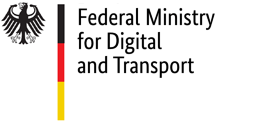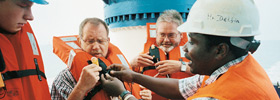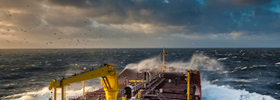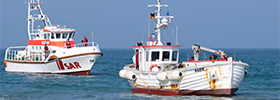Safety • Security
Quality succeeds: Safe journey under the German flag
Since the earliest days of shipping there have been accidents at sea. Spectacular disasters, e. g. of the Titanic, Pamir, Exxon Valdez, Estonia, Prestige and Pallas have caused much hardship to mankind and damage to the environment, but also the impressive progress in ship safety standards.
The International Convention for the Safety of Life at Sea (SOLAS) can be traced back to 1913. Since then, this convention has been permanently reviewed and amended. While ship safety regulations used to differ from flag to flag, they are now increasingly provided on a global scale by the International Maritime Organisation (IMO). For example, the International Safety Management-Code (ISM) addresses the safety aspects of ship operation and the International Ship and Port Facility Security Code (ISPS) established in 2002 global measures to detect and deter acts which threaten security in the maritime transport sector.
However, the individual flag state and the shipowner remain to be decisive players in ship safety. How strictly are the regulations interpreted and how strict are surveyors in checking compliance? Is there a competent flag state administration with sufficient expertise and experience? Has the flag state implemented all relevant international law into its own national law?
Internationally the German flag is highly regarded as a flag of quality. The German flag regularly reaches top positions in the rankings by flag states, which means a direct profit also for shipowners: operating under a flag of quality and keeping a ship well maintained mean less idle times for the ship and will also be rewarded with fewer port state controls.





